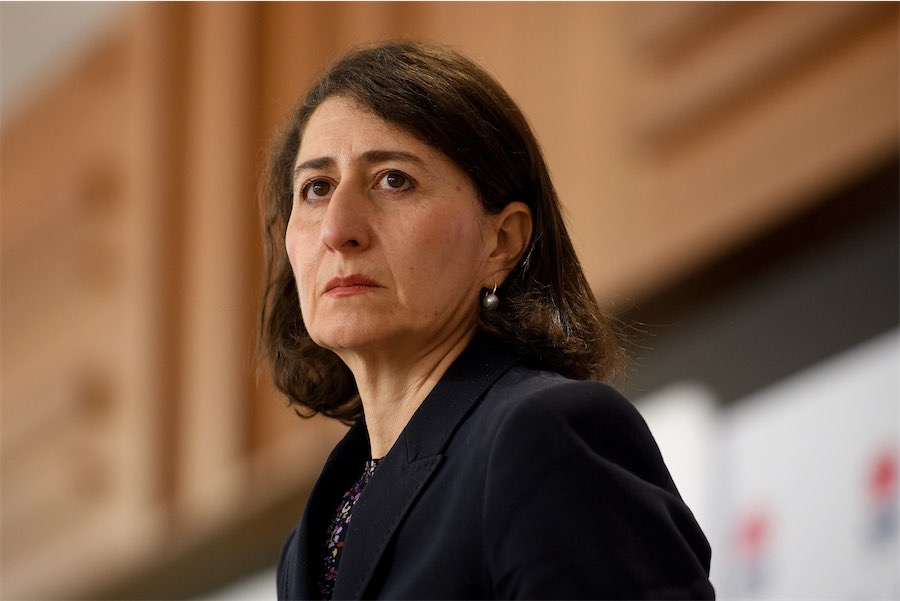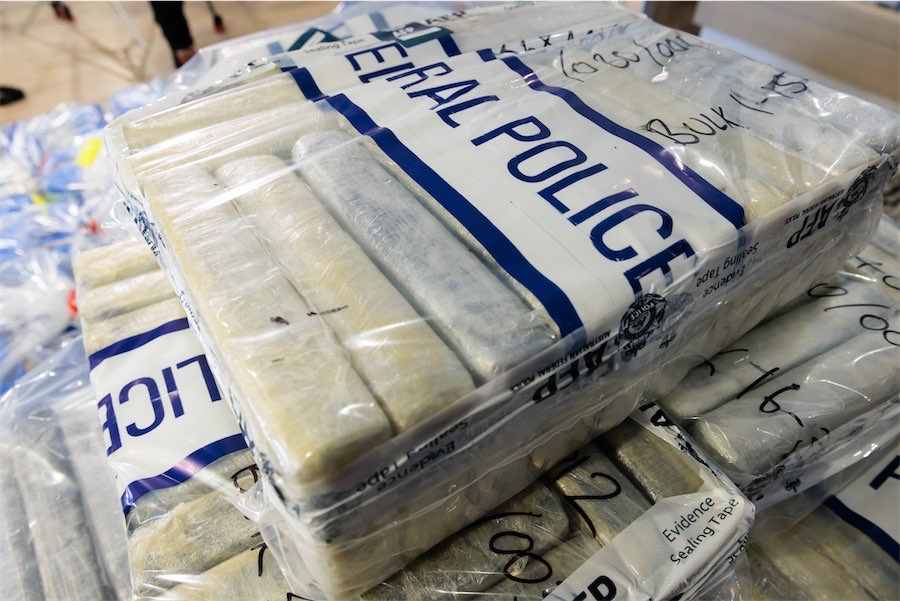
By Luke Costin in Sydney
Not only Gladys Berejiklian’s reputation will be on the line when three senior judges sit to consider a years-long scandal that tainted her political career.
The former NSW premier’s bid this week to purge any association to “serious corrupt conduct” could have huge ramifications for the anti-corruption agency that slapped the label against her name.
The June 2023 findings by the NSW Independent Commission Against Corruption (ICAC) will undergo a judicial review in a NSW Court of Appeal hearing starting on Monday.
The now-Optus executive argues the finding, that she engaged in serious corrupt conduct by failing to disclose her relationship with a fellow Liberal MP while taking part in funding decisions for pet projects in his electorate, is based on material errors of law and ought to be quashed.
“It’s a case which has pretty dramatic consequences for both sides,” said barrister and Centre for Public Integrity director Geoffrey Watson SC.
“For Ms Berejiklian… if that challenge fails, that’s in effect the judicial confirmation of the finding of serious corrupt conduct.
“And I guess that would carry even a bigger mark than a finding by ICAC.”
But success by the 53-year-old in her multi-pronged appeal could also blast a hole through the corruption watchdog’s standing.
Assistant Commissioner Ruth McColl SC’s 688-page final report was delivered nearly three years after compelling the then-premier to admit to her “close personal relationship” with Wagga Wagga MP Daryl Maguire.
That relationship, which ICAC found spanned as far back as 2014 and at some point involved Maguire having a key to Ms Berejiklian’s home, underpinned the findings of serious corrupt conduct.
In the final report, the former Court of Appeal judge found the then-premier had a desire to maintain or advance that relationship, which influenced her while exercising her official functions.
Ms Berejiklian has long denied the relationship had any bearing on her decisions, and her lawyers will tell the appeal court there is no probative evidence to support the ICAC finding.
Other grounds of the appeal include attacks on findings concerning Ms Berejiklian’s responsibility to act in the public interest and the merits of Mr Maguire’s pet projects.
“If some of those are upheld, that could damage ICAC’s reputation for fact finding,” Mr Watson said.
Success on her main argument also risks scuppering other ICAC investigations.
Ms Berejiklian argues Ms McColl put the finishing touches on her final report while engaged as a consultant, not a commissioner, invalidating all she put to paper.
It follows ICAC’s unusual move to extend Ms McColl’s term after November 2022 to allow her time to finish the voluminous report.
If Ms Berejiklian is right, ICAC will be forced to change how it operates.
It could also spark a rush in parliament to overcome the quirk, Mr Watson said.
“For example, if you had a report where it was started under one commissioner and he or she died, the whole of the process would die with them,” he suggested.
The matter was a huge issue for a body “that is given extraordinary powers behind closed doors”, Matt Kean said.
The moderate Liberal MP served as energy and environment minister under Ms Berejiklian and has previously described the findings as a “ridiculous display”.
“We have a body that is given extraordinary powers behind closed doors,” he told AAP.
“And the one element we actually get to see, ends up in court to examine if the body was operating within the law.”
While not pre-judging, he suggested an upheld appeal would undermine confidence in the entire ICAC investigation that focused on Ms Berejiklian.
“As the former treasurer, a current member of parliament and a citizen of this state, I think it’s a huge issue as to whether or not ICAC is following and understanding the basic rules of NSW law,” he said.
In court filings, ICAC contests the claim Ms McColl handed down the report, saying she oversaw the hearings but the findings were made by ICAC Chief Commissioner John Hatzistergos.
It accepts Ms McColl was not delegated the function to prepare or make the report.
Even if some other grounds of Ms Berejiklian’s appeal succeed, the commission argues many are not material to the ultimate finding of serious corrupt conduct.
Both ICAC and Ms Berejiklian declined to comment for this article.
Chief Justice Andrew Bell, Court of Appeal President Justice Julie Ward and the long-serving Justice Anthony Meagher are expected to hear arguments from Monday.
The hearing, a stone’s throw from the halls of power Ms Berejiklian once walked, is expected to run until Tuesday.
Who can be trusted?
In a world of spin and confusion, there’s never been a more important time to support independent journalism in Canberra.
If you trust our work online and want to enforce the power of independent voices, I invite you to make a small contribution.
Every dollar of support is invested back into our journalism to help keep citynews.com.au strong and free.
Thank you,
Ian Meikle, editor





Leave a Reply